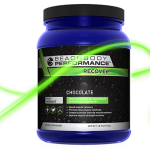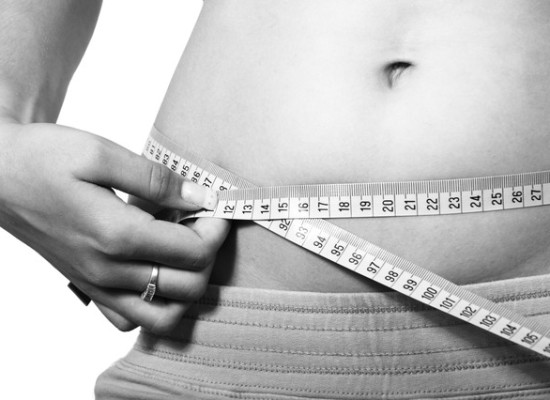
Why am I Gaining Weight Early in P90X (or Insanity)???
I get a lot of questions about gaining weight in P90X. They generally fall into two main categories—1) People who are well into Phase II of P90X OR 2) people who are gaining weight early in P90X (say at the end of Week 1).
They jump on the scale full of anticipation and are totally shocked to find they’ve gained some weight.
I want to cover the full spectrum of reasons you might gain weight on the P90X workouts (or even Insanity) so you can nail down what might be your issue. Typically, there is a different reason for gaining weight early in P90X versus later.
My First Week of a P90X Hybrid Workout
When I started Week 2 of my P90X and Cycling Hybrid Workout, I was a svelte 160.6 pounds.
Being 5’9″ and a cycling junkie, I like that number! I’m light enough for the climbs, but can still muster up power when I need it. Further, it is my “level.” If I workout regularly and eat well, that’s basically where I find myself (give or take 2 or 3 pounds). It’s been like clockwork for about three years now.
Well, guess what? By the end of the week, I was weighing in at 167.1 pounds. (Gulp!)
Did I freak out that was gaining weight early in P90X? No, because I was pretty sure I knew what was going on AND I consulted the experts and learned A LOT.
Gaining Weight on P90X and Insanity
You’re doing everything right. Every day you show up and bring it. And, you’re eating right—or, at the very least, you’re following the 80/20 rule with either the P90X Nutrition Guide or the Insanity Nutrition Guide.
Yet, the scale isn’t moving—maybe you’ve even gained weight. What gives???
First of all, rest assured this is NOT because P90X doesn’t work or it’s a big scam. There are a several things that could be going on.
These are the four most common explanations for gaining weight on P90X:
1. The Scale is a Liar
It may come as a surprise to you that the scale is a poor metric of success. Seriously.
Why? Because it only measures total weight and does not tell you what your body composition (body fat percentage) is.
What that means is you could have burned five pounds of fat and gained seven pounds of muscle. The scale goes up two pounds, leading you to the misconception that nothing good is happening. Since muscle is more than three times as dense as fat, most people would gladly exchange fat for muscle!
The picture to the right shows roughly what a pound of muscle (red) looks like in comparison to a pound of fat (yellow).
When you gain muscle and burn fat, your body shrinks. In addition, muscle helps to burn fat because your body has to burn calories to actively maintain the muscle mass.
Here’s a good illustration of this point:
Tony Horton and I are both about 5’9″—I weigh 162 pounds and Tony weighs about 180. I don’t think anyone is going to believe that he’s somehow fat because he weighs more than I do. If all we did was get on a scale, he’d certainly come out looking worse. But, if you looked at the two of us next to each other, it’s clear that the extra 20 pounds he has on me are all muscle.
You just cannot trust the scale, because it’s not giving you the key metric you need—the percentage of your body weight that consists of fat and the percentage that consists of muscle.
You want to use pictures and accurate body measurements to assess your progress. Most people really don’t care how much they weigh—they care how they look. So, get your favorite pair of jeans or your best swimsuit and see how you fit in that throughout the program. If your body is shrinking, you’re burning fat!
Click here to read more on correctly tracking your progress. And, watch this video to learn more about what a liar the scale can be:
2. Inflammation
The following is written by Chalene Johnson, the creator of Turbo Jam and Turbo Fire:
Probably the most common question I get when I release a new exercise program is, “Help! I’m gaining weight! Am I doing something wrong?” This is a common phenomenon with any new exercise program, such as Turbo Kick, Turbo Jam, Hip Hop Hustle, or others! It’s especially common (and temporary) with intense strength training programs like ChaLEAN Extreme or Tony Horton’s P90X.
The motivation to start a new exercise program is almost always to lose weight. However, what most personal trainers know–and most at-home exercisers do not–is that a new exercise program often can cause an immediate (and temporary) increase on the scale. (Notice I didn’t say weight gain! I’ll explain.) This common increase in the scale is also the reason why perhaps millions of people start and then quickly quit their resolution to get fit.
The temporary weight gain explained—When someone starts a new exercise program, they often experience muscle soreness. The more intense and “unfamiliar” the program, the more intense the muscle soreness. This soreness is most prevalent 24 to 48 hours after each workout. In the first few weeks of a new program, soreness is the body trying to “protect and defend” the effected or targeted tissue. Exercise physiologists refer to this as delayed-onset muscle soreness, or DOMS.
This type of soreness is thought to be caused by tissue breakdown or microscopic tears in muscle tissue. When this happens, the body protects the tissue. The muscle becomes inflamed and slightly swollen due to fluid retention. This temporary retention of fluid can result in a 3- to 4-pound weight gain within a few weeks of a new program. Keep in mind that muscle soreness is not necessarily a reflection of how hard you worked. In fact, some people feel no signs of muscle soreness, yet will experience the muscle protection mechanisms of water retention and slight swelling.
Most people are motivated enough to put up with this temporary muscle soreness. Yet, many, especially those who really need immediate weight loss to keep them motivated, become discouraged and quit!
When I worked with a group of 70 test participants during the development stages of ChaLEAN Extreme, this happened. Who was the most upset and discouraged? You guessed it… the women! I’m happy to report absolutely for every single woman (and man) in our group, the weight increase was temporary and never lasted more than two weeks before they started to see a major drop in the scale. However, these people had the advantage of working with someone who was able to explain to them why this was happening and assure them the weight would come off if they stuck to the nutrition plan and stayed true to the program.
If you follow a multi-phase exercise plan, such as ChaLEAN Extreme, keep in mind that when you start each phase, your body will be “in shock” again. Don’t be surprised or discouraged if you experience a temporary gain on the scale the first week of each phase.
My own personal example of this is running 10Ks. I don’t do it very often, maybe once or twice a year. Even though I run on a regular basis, when you run a race, you push much harder. It’s natural for me to be insanely sore the next day. It’s also very common for me to see the scale jump 4 pounds the next day from forcing fluids post race and the resulting DOMS. Even though I know the cause of it, it’s still a bummer. We’re all human and hard work should mean results. Hard work equals results, but our bodies are amazing machines and they know how to protect us from hurting ourselves. Soreness forces you to give those muscles a break. Ultimately you will lose the weight and you will change your metabolism in the process.
The key is understanding that this is a normal and temporary and stick with the program!
 Chalene summed it up. You really must understand that putting the body under extreme stress can result in inflammation.
Chalene summed it up. You really must understand that putting the body under extreme stress can result in inflammation.
Understand that you’re putting your body through a lot and you might be experiencing significant muscle inflammation. I always suggest Beachbody Recover post-workout supplement (the successor to P90X Results and Recovery) to help your muscles heal faster and cut down on inflammation.
To learn more how to combat sore and inflamed muscles, check out this post—How to Relieve Sore Muscles After Workouts
3. Your Expectations are Unreasonable
This one is never popular. I see a lot of people that think they can lose the weight they’ve gained over the past 20 years in just two or three weeks. When they don’t see the pounds melting off in the first few weeks, they give up.
Check in with yourself to see if your expectations are reasonable and you’re having integrity with your health and fitness. Be consistent and be patient.
4. You are Taking in Too Many Calories
Weight gain is largely a function of caloric intake. Whether that gain is muscle or fat is a function of the type of calories (i.e., McDonalds vs. grilled chicken breasts) and the exercise involved.
If you burn more calories than you take in, you will lose weight. That’s just a fact. It doesn’t mean you’ll necessarily be healthy.
People starve themselves all the time to lose weight. That’s obviously an error. If you burn less calories than you take in, then you will gain weight. If you eat healthy foods and workout, then you’ll gain muscle mass and you’ll probably burn fat in the process. Getting your calories right is essential.
On the Right Track
Here is more confirmation of this information—I lost four pounds over the course of one of the DAYS following my initial weigh-in.
If you weigh yourself regularly, you know that you’ll typically weigh less in the morning and a few pounds more as the day goes on. After I did P90X Chest & Back, I checked in at 163 pounds.
This tells me my body is doing exactly what Chalene talked about. As I switch exercises, particularly when I go to a strength training based routine, my body responds this way—and it’s very likely yours will too.
Also, check out this post—6 Healthy Eating Tips to Help You Lose Weight
Get Help From a P90X Certified Coach
Hopefully, you have a clear understanding of why you might be gaining weight early in P90X. Now that you know this information, you don’t have to be surprised or upset if your body reacts this way. It will pass. Your body is just trying to protect you.
For all it knows, you are doing all this exercise because there is a huge flood coming and you are working to protect your house. The body has a lot of protective instincts. Just go with it. Water—and your body—always finds its level.
Now you know that the scale is only giving you one metric (total weight) and that’s simply not enough info. The scale doesn’t tell you how much of that total weight is fat, muscle, bone, or…water. (Yes, water retention is also an issue!). This is why I call it the most evil of dictators! It uses MISinformation to control your life.
If you’re still needing help with this issue, get hold of me. Having done all of the P90X workouts multiple times, and being P90X Certified, I can most definitely help you on a one-on-one basis.
Thanks to Beachbody, my coaching is free. Check out our coaching program and let’s get started on working together today:




